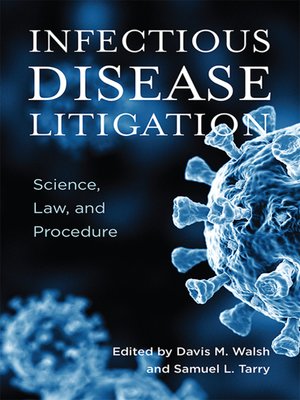
Sign up to save your library
With an OverDrive account, you can save your favorite libraries for at-a-glance information about availability. Find out more about OverDrive accounts.
Find this title in Libby, the library reading app by OverDrive.



Search for a digital library with this title
Title found at these libraries:
| Library Name | Distance |
|---|---|
| Loading... |
Modern technology offers new tools to better understand, track, and explain viral and bacterial spread in humans. In 2020, as COVID-19 overwhelmed governments and significant segments of the population and paralyzed many courts, we became painfully aware of the magnitude of risk carried around in tiny bacteria and viruses. COVID-19 has shown us that developing standards of care, treatments, and vaccines for emerging viruses and bacteria can take substantial time and resources. The rise in superbugs and drug-resistant bacteria, and the difficulty of treating these infections, have raised new questions about the balance between public health and global commerce. More than ever, practitioners need to think like scientists—following the facts and science to build a case. Like science, the law has not remained stagnant. Products, premises, and food outbreak liability law—all applicable to this type of litigation—have evolved through legislative acts, regulatory rulemaking, and the common law. This evolution has occurred parallel to the advances of science, purposeful or not.
While COVID-19 changed the original scope of this book by broadening the areas of inquiry, the basic idea remains the same: science and the law seldom remains static. The emergence of widespread contagion litigation has underscored key developments in both science and law. COVID-19 has highlighted that disputes over outbreaks are not limited to tort litigation. The pandemic has also seen a rise in insurance, contract, and employment cases related to COVID-19. All of these types of litigation now face epidemic- and pandemic-related questions. This book provides guidance for the practitioner who is handling any type of outbreak litigation, from complex disputes arising out of the COVID-19 pandemic to smaller localized outbreaks that require special expertise.







